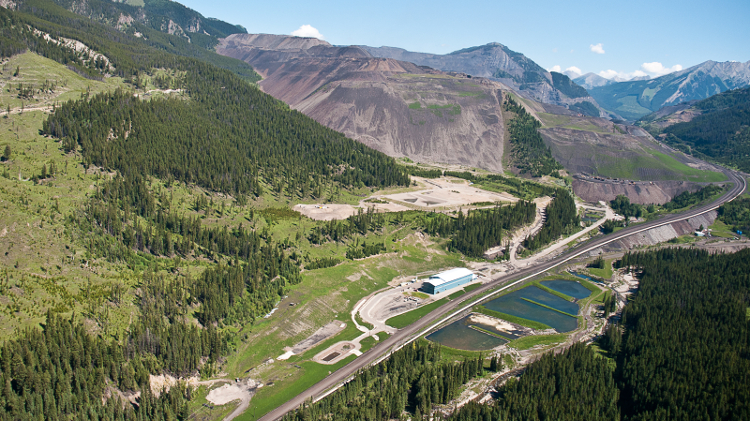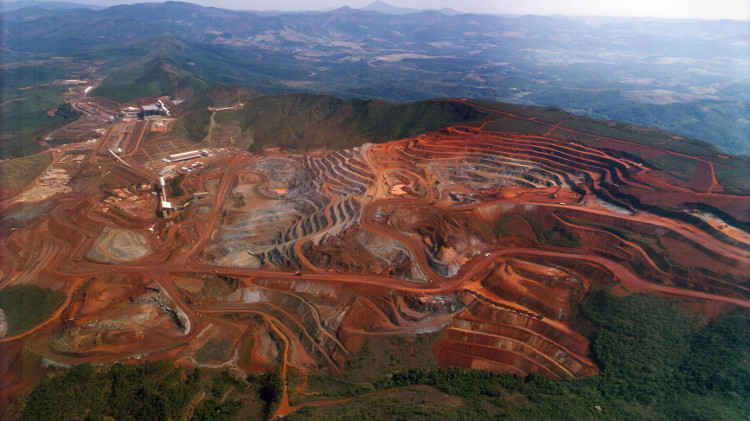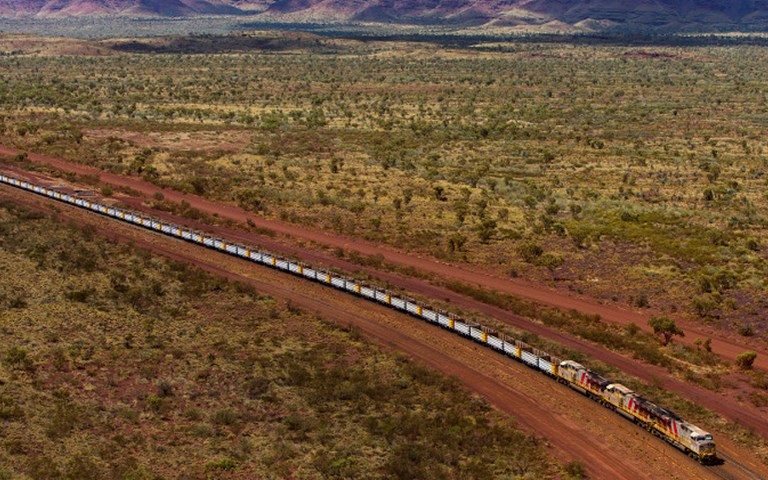When it is commissioned, AutoHaul will extend across the company’s 1,700-kilometre rail network in the Pilbara. Courtesy of Rio Tinto
Rio Tinto completed its first fully autonomous train trip at its Pilbara operations in Western Australia, with a driverless train hauling iron ore nearly 100 kilometres.
The pilot journey, announced Monday, is part of Rio Tinto’s US$518-million AutoHaul project to automate its Pilbara railway system. The company said it is on track to fully commission the project in late 2018.
AutoHaul has experienced setbacks, including software issues, and in April 2016 the company cut its annual production guidance for its operations in the region due to delays with the project.
“This successful pilot run puts us firmly on track to meet our goal of operating the world’s first fully autonomous heavy haul, long distance rail network,” said Chris Salisbury, Rio Tinto’s iron ore chief executive in a statement.
The train trip was overseen by Rio Tinto teams and representatives of Australia’s Office of the National Rail Safety Regulator both on the ground and at the company’s Perth operations centre.
The company began running trains in autonomous mode in the first quarter of this year with drivers on-board to supervise. About half of the entire fleet’s kilometres have been in autonomous mode.
RELATED: What is the best way into the automated future?
The company said it has already seen improvements from the project, including lower average cycle times due to increased train speed and “reduced variability.”
When it is commissioned, AutoHaul will extend across the company’s 1,700-kilometre rail network in the Pilbara.
The project is part of Rio Tinto’s Mine of the Future program in the region. As part of that project, the company has deployed a fleet of 69 autonomous Komatsu trucks at the Nammuldi, Yandicoogina and Hope Downs 4 mines, which are operated remotely from Perth.
Rio Tinto is among the top three iron ore producers globally. In the Pilbara, it operates 200 trains that transport iron ore from 16 mines to four port terminals.




